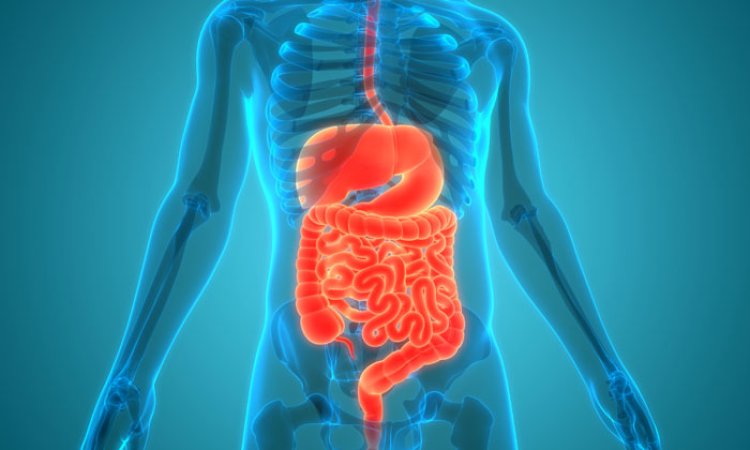Healthy Digestive System: Expert Tips from a GI Surgeon
Healthy Digestive System: Expert Tips from a GI Surgeon
Share this Post to earn Money ( Upto ₹100 per 1000 Views )

The digestive system includes the mouth, throat, food pipe, stomach, small and large intestines, rectum, and anus. It also has salivary glands, liver, gallbladder, and pancreas that release special juices and enzymes to help digest food and drinks.
Taking care of your digestive system plays an important role in your overall health and well-being. If it’s not working well, it can’t take in all the good stuff from food, and that can cause lots of health issues. So, eating the right foods and staying healthy are key to keeping your digestive system happy and doing its job well.
A GI surgeon is the best doctor to guide you toward keeping your digestive system healthy. GI surgeons are specialists in the gastrointestinal health and workings of the digestive system and are passionate about promoting its optimal function.
In this article, we will share some expert tips to keep your digestive system in top-notch condition.
Here are few important tips for maintaining good digestive system health:
- Increase fiber-rich food intake: One of the key ingredients for a healthy digestive system is fiber. GI surgeons recommend a diet with at least 25–30 grams of fiber per day from sources such as fruits, vegetables, oatmeal, nuts, whole grains, and legumes to ensure adequate intake. Fiber promotes regular bowel movements and helps prevent constipation, a common digestive issue.
- Stay hydrated: Hydration is important to maintain a healthy digestive system. Drinking plenty of water supports the digestion and absorption of nutrients while helping to prevent issues like constipation. Make it a habit to sip water throughout the day for optimal digestive function.
- Getting adequate sleep: The duration of your sleep can impact how well your digestive system works. Just like the rest of your body, your digestive system requires time to rest and relax. Having a meal two hours before bedtime can disturb your digestive system and interfere with your sleep. Keeping a regular sleep schedule with consistent hours can help your digestive system work better.
- Mindful eating practices: GI surgeons emphasize the importance of mindful eating. Chew your food thoroughly to aid digestion, and pay attention to your body’s hunger and fullness signals. Avoid overeating, and give your digestive system the time it needs to process food.
- Limit fatty food intake: Fatty and deep-fried foods can cause your digestion to slow down. Additionally, these foods may stimulate the excessive production of stomach acid, elevating the chances of experiencing gastric reflux or gastroesophageal disease.
- Include probiotics in your diet: Probiotics are good bacteria that support the digestive system’s health. Incorporate probiotic-rich foods like yogurt, kefir, sauerkraut, and kimchi into your diet. These foods help maintain a balanced gut microbiome, which plays a vital role in overall digestive wellness.
- Regular exercise: Physical activity is for your digestive system. Regular exercise promotes bowel regularity and helps prevent conditions like irritable bowel syndrome (IBS). Aim for at least 30 minutes of moderate exercise most days of the week.
- Maintain a healthy weight: Maintaining a weight that’s good for your health lowers the risk of developing conditions like gallstones, GERD, and certain digestive cancers. To stay at a healthy weight, you should eat well and stay active. This includes making smart choices like losing weight if necessary, eating nutritious foods, and exercising regularly.
- Manage Stress: Stress can take a toll on your digestive system. GI surgeons emphasize stress management as a key component of digestive health. Practice relaxation techniques such as deep breathing, meditation, or yoga to keep stress levels in check.
- Leave addictions: Consumption of alcohol and smoking are associated with stomach ulcers and acid reflux. By leaving these habits, your digestive health will improve, and you will get relief from the various symptoms of digestive problems.
- Schedule regular check-ups: Don’t neglect your routine medical check-ups. Regular visits to your GI surgeon allow for the early detection and management of digestive issues. Addressing concerns early on can prevent more significant problems in the long run.
Summing it up with Dr. Neeraj Goel
Digestive issues are a common experience for everyone at some point in life. They can be uncomfortable, challenging to discuss, and interfere with your daily routine. While making certain changes in your lifestyle, you can often lessen many digestive problems; some may necessitate a visit to a doctor for a proper diagnosis and treatment plan.
If your digestive concerns persist despite lifestyle modifications or are worsening, it’s advisable to consult a GI surgeon. Encouraging a well-functioning digestive system is important for your overall health. By integrating the valuable advice and tips provided by Dr. Neeraj Goel, the best GI surgeon in Delhi, you can proactively work towards sustaining excellent digestive health. Dr. Neeraj Goel’s extensive experience as a GI surgeon guarantees patients receive thorough care and advice for maintaining a healthy digestive system.
To schedule an appointment With Dr. Neeraj Goel for Cancer Surgeon in Delhi, please contact:
Name: Dr. Neeraj Goel (Cancer Surgeon in Delhi)
Address: D-1, Hakikat Rai Rd, Block D, Adarsh Nagar, Delhi, 110033
Phone: +91–9667365169, +91–9599294453
Website: www.gastrodelhi.com













